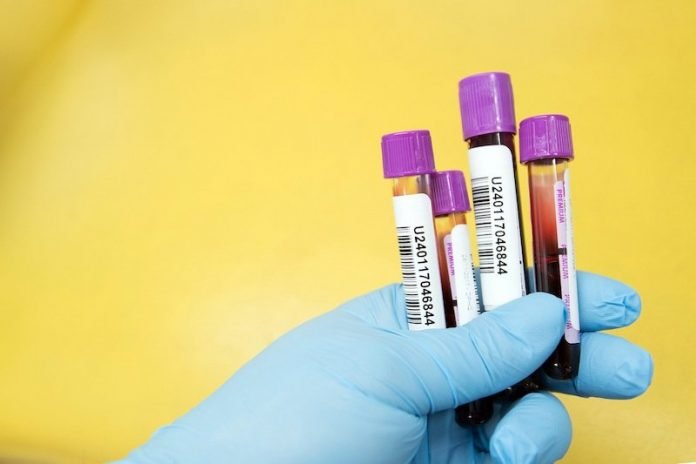
In a new study from Lund University in Sweden, researchers developed an algorithm that combines data from a simple blood test and brief memory tests, to predict with great accuracy who will develop Alzheimer’s disease in the future.
Approximately 20-30% of patients with Alzheimer’s disease are wrongly diagnosed within specialist healthcare, and diagnostic work-up is even more difficult in primary care.
Accuracy can be significantly improved by measuring the proteins tau and beta-amyloid via a spinal fluid sample, or PET scan.
However, those methods are expensive and only available at a relatively few specialized memory clinics worldwide.
Early and accurate diagnosis of AD is becoming even more important, as new drugs that slow down the progression of the disease will hopefully soon become available.
In a study, the team examined 340 patients with mild memory impairment in the Swedish BioFINDER Study, and the results were confirmed in a North American study of 543 people.
They developed a tool that combines relatively easily acccessible tests and can be used for early and reliable diagnosis of Alzheimer’s disease.
A combination of a simple blood test (measuring a variant of the tau protein and a risk gene for Alzheimer’s), along with three brief cognitive tests that only take 10 minutes to complete, predicted with over 90% certainty which patients would develop Alzheimer’s dementia within four years.
This simple prognostic algorithm was much more accurate than the clinical predictions by the dementia experts who examined the patients, but did not have access to expensive spinal fluid testing or PET scans.
The algorithm is based on a blood analysis of phosphylated tau and a risk gene for Alzheimer’s, combined with testing of memory and executive function.
The researchers have now developed a prototype online tool to estimate the individual risk of a person with mild memory complaints developing Alzheimer’s dementia within four years.
One clear advantage of the algorithm is that it has been developed for use in clinics without access to advanced diagnostic instruments.
In the future, the algorithm might therefore make a major difference in the diagnosis of Alzheimer’s within primary healthcare.
If you care about Alzheimer’s disease, please read studies about this diet may reduce Alzheimer’s risk by changing the gut and findings of a new way to combat Alzheimer’s disease.
For more information about Alzheimer’s disease and your health, please see recent studies about this eye test could show your risk of Alzheimer’s disease and results showing that Alzheimer’s disease is detectable in blood tests.
The study is published in Nature Medicine. One author of the study is Professor Oskar Hansson.
Copyright © 2021 Knowridge Science Report. All rights reserved.



